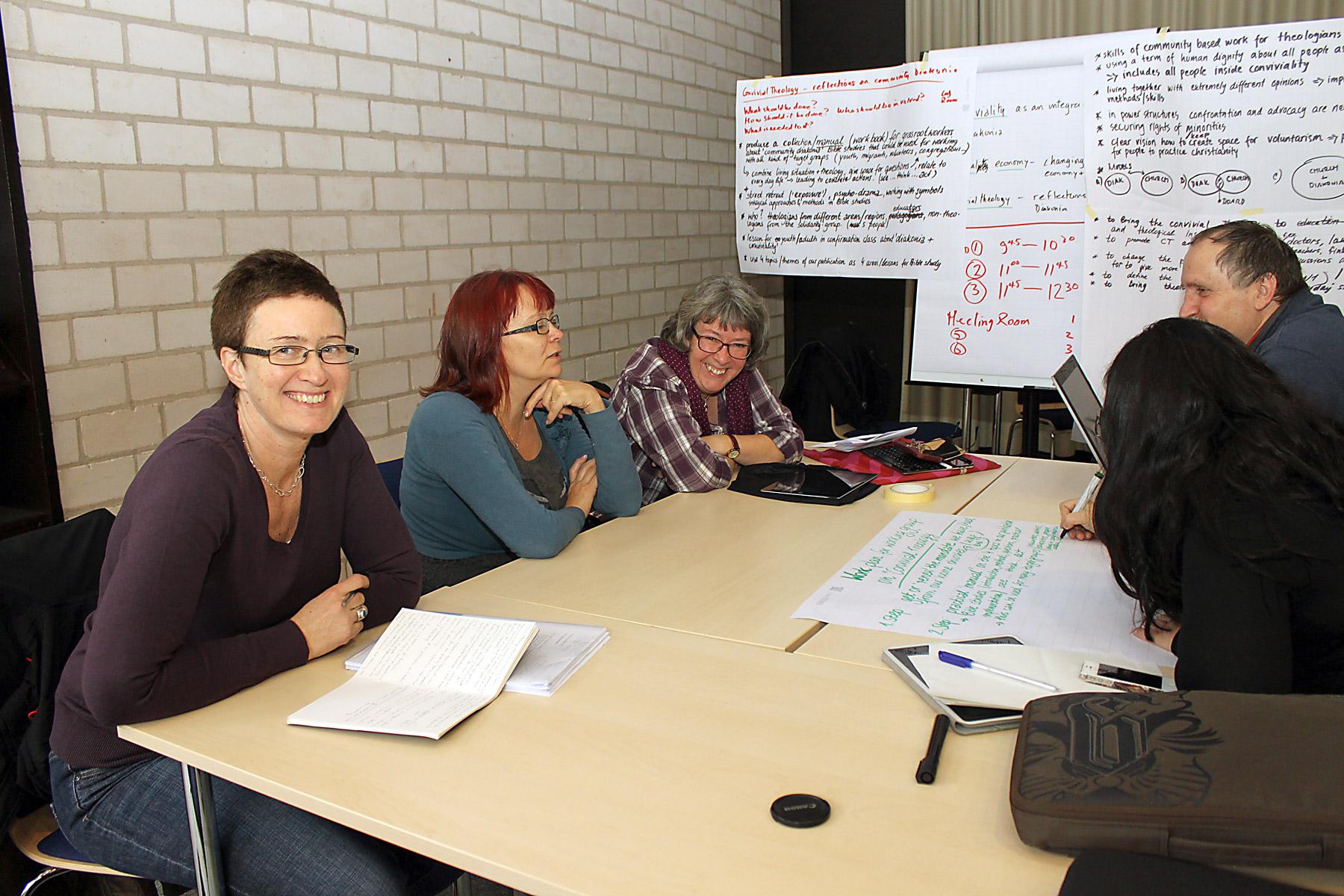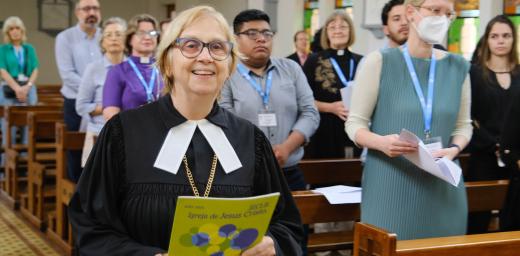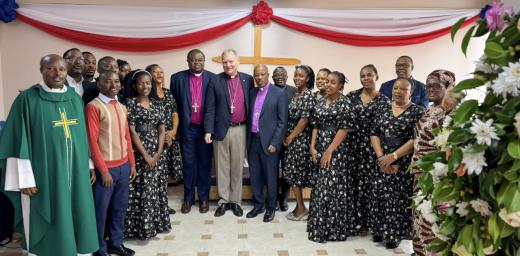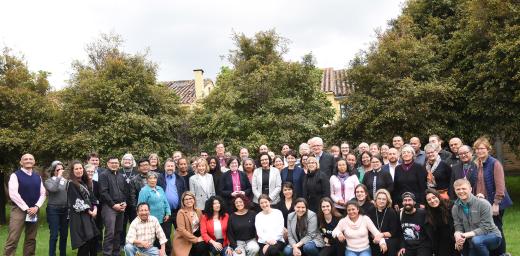Conviviality in Europe’s Diaconal Efforts

Conference participants discuss new approaches. Despite the diversity in Europe, diaconal workers face similar concerns. Photo: Szilard Szabo
Seeing Church in a New Way
(LWI) – Diaconal workers from Lutheran churches across Europe have launched a three-year strategy that makes conviviality - the art and practice of living together - an integrating concept guiding community service programs on the continent.
Meeting in a workshop of The Lutheran World Federation (LWF) European Diaconal Process at Nuremberg, Germany, 14-17 January, 20 diaconal actors from 12 countries launched the report, “Seeking Conviviality – Reforming Community Diakonia in Europe”.
New approaches to diakonia
The report outlines new approaches to community diaconal work as Europe faces challenges such as migration, globalization and poverty, and as LWF member churches plan the 500th anniversary of the Reformation in 2017.
Organized by the LWF Europe Desk in conjunction with the International Academy for Diakonia and Social Action (interdiac), the event was hosted by the Diakonia Rummelsberg of the Evangelical Lutheran Church in Bavaria.
Since 2011 diaconal workers in Europe have met to enhance community practice across the continent, and to develop the notion of being a church with and for those in vulnerable situations in various contexts.
The process has been led by the European Solidarity group, which has based its reflections on their experiences working with vulnerable communities. The meeting confirmed that the focus for 2014 will be the practice of conviviality; in 2015 it will be convivial economy, in 2016, convivial theology.
Plans are underway for study visits and “conviviality weeks” locally and Europe-wide; there will be advocacy and training on convivial economy; and Bible studies on convivial theology are in preparation.
Similar concerns in all of Europe
The meeting found that despite the diversity in Europe, diaconal workers face similar concerns, including economic challenges and struggles for justice. They said that conviviality helps focus efforts on the grassroots, enabling people to become diaconal actors.
Ms. Marija Parnitzky of Serbia, a psychologist with the Ecumenical Humanitarian Organization, Novy Sad, said that she is happy to use conviviality materials in her work. “I am thinking about the church in a new way.”
For his part, Rev. Steinar Eraker of Norway noted that it was inspiring for the diaconal workers to hear about mission work in different contexts. “I have already used the publication in my context of the Oslo City Mission.”
Ms. Nicole Borisuk, who runs day care centers for marginalized children in the Ukraine, said her team finds the concept of conviviality encouraging. “We are already living conviviality in our projects, and I will encourage my staff to continue.”





